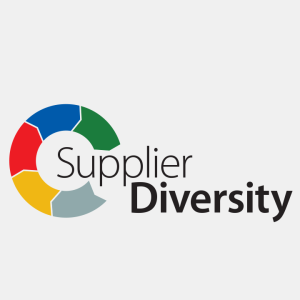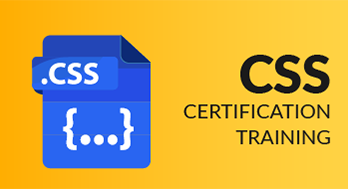In today’s increasingly diverse and interconnected world, the importance of supplier diversity in the business landscape cannot be overstated. A diverse supplier base not only fosters innovation but also promotes economic empowerment and equity. Companies are recognizing the value of supplier diversity, both from a social responsibility perspective and as a business strategy that can drive growth and enhance reputation.
As the demand for supplier diversity grows, so does the need for trained professionals who can manage and optimize these initiatives. Supplier diversity professional certification programs have emerged as a way to equip individuals with the knowledge, skills, and expertise necessary to lead, promote, and implement supplier diversity programs effectively. In this article, we will delve into the world of supplier diversity professional certification, exploring its significance, benefits, and the pathways to obtaining this certification.
The Growing Importance of Supplier Diversity
Supplier diversity refers to the practice of sourcing goods and services from businesses owned by individuals from underrepresented groups, such as women, minorities, veterans, LGBTQ+ individuals, and people with disabilities. It is more than just a compliance requirement; it is a strategic approach to building inclusive and equitable supply chains. The advantages of supplier diversity are manifold:
- Innovation: Diverse suppliers bring fresh perspectives and innovative solutions to the table, enhancing a company’s competitive edge.
- Economic Empowerment: Supporting diverse suppliers drives economic empowerment and wealth creation within underrepresented communities.
- Risk Mitigation: A diverse supplier base can reduce the risk associated with over-reliance on a few suppliers and improve resilience in the face of unforeseen disruptions.
- Enhanced Reputation: Companies that champion supplier diversity are often seen as socially responsible and ethical, which can positively impact their brand and customer loyalty.
- Regulatory Compliance: Many governments and industries have established regulations and mandates for supplier diversity, making it a legal requirement in some cases.
Understanding Supplier Diversity Professional Certification
As the field of supplier diversity continues to evolve, there is a growing need for professionals who can navigate the complexities and harness the benefits of diverse supply chains. Supplier diversity professional certification programs aim to fill this gap by offering comprehensive education, training, and recognition to individuals working in this field. These programs equip candidates with the knowledge and skills required to manage supplier diversity programs effectively.
Supplier diversity certification programs are typically offered by various organizations, including the National Minority Supplier Development Council (NMSDC), the Women’s Business Enterprise National Council (WBENC), and the National LGBT Chamber of Commerce (NGLCC). Each program may have its own specific focus, but they generally cover key topics such as:
- Supplier Diversity Fundamentals: An understanding of the basic principles and concepts of supplier diversity, including the importance of diverse suppliers in the supply chain.
- Compliance and Regulations: Knowledge of relevant legal and regulatory requirements related to supplier diversity.
- Program Development and Management: Skills in developing, implementing, and managing supplier diversity programs within an organization.
- Supplier Identification and Evaluation: Techniques for identifying and evaluating diverse suppliers for procurement opportunities.
- Metrics and Reporting: Measuring and reporting on the impact of supplier diversity initiatives, including tracking key performance indicators (KPIs).
- Stakeholder Engagement: Strategies for engaging internal and external stakeholders to support supplier diversity goals.
- Supplier Relationship Management: Techniques for building and maintaining strong relationships with diverse suppliers.
- Ethical Procurement: The importance of ethical procurement practices and social responsibility in supplier diversity initiatives.
The Benefits of Supplier Diversity Professional Certification
Obtaining a supplier diversity professional certification offers numerous advantages for individuals and organizations alike. Let’s explore some of the key benefits:
- Enhanced Expertise: Certification programs provide in-depth knowledge and expertise, enabling professionals to navigate the complexities of supplier diversity more effectively.
- Credibility: Certification serves as a recognized credential, lending credibility to an individual’s expertise in supplier diversity.
- Career Advancement: Certified professionals often have better career prospects and may be eligible for higher-paying roles and increased responsibilities.
- Organizational Benefits: Companies benefit from having certified professionals who can drive successful supplier diversity programs, resulting in a competitive advantage.
- Network Expansion: Certification programs often facilitate networking opportunities, connecting professionals with like-minded individuals and organizations in the supplier diversity field.
- Industry Recognition: Many supplier diversity certification programs are well-regarded in the industry, and holding such a certification can lead to greater recognition and respect.
Pathways to Supplier Diversity Professional Certification
If you’re interested in pursuing a supplier diversity professional certification, here are some steps to guide you through the process:
- Eligibility Check: Research the certification programs offered by organizations like NMSDC, WBENC, or NGLCC. Ensure you meet their eligibility criteria, which may include relevant work experience and educational qualifications.
- Select a Certification Program: Choose a program that aligns with your career goals and aspirations. Each program may have a different focus or emphasis, so select one that resonates with your objectives.
- Enroll in the Program: Once you’ve identified a suitable certification program, enroll in it. Most programs offer both in-person and online options, making it accessible to a wide range of professionals.
- Complete the Training: Engage in the training and education provided by the certification program. This may involve attending workshops, webinars, and courses, as well as self-study.
- Pass the Certification Exam: Many certification programs require candidates to pass an examination to demonstrate their knowledge and competence in supplier diversity. Study diligently to prepare for the exam.
- Maintain Certification: Some certifications require ongoing education and professional development to maintain your certification. Be sure to meet any continuing education requirements.
- Apply Your Knowledge: After obtaining certification, apply your knowledge and skills within your organization or in your career. Use what you’ve learned to drive supplier diversity initiatives and make a positive impact.
Also Read: Total Rewards Professional Certification
Conclusion
Supplier diversity is no longer an option but a strategic imperative for organizations committed to fostering inclusive and equitable supply chains. Supplier diversity professional certification programs play a vital role in equipping individuals with the knowledge and skills necessary to navigate the complexities of supplier diversity successfully.
These programs offer a multitude of benefits, from enhanced expertise and credibility to career advancement and organizational success. If you are passionate about promoting diversity and inclusion in procurement, obtaining a supplier diversity professional certification is a significant step toward becoming a leader in this dynamic and important field. Embrace the opportunities presented by supplier diversity, and help shape a more equitable and inclusive future for businesses and communities alike.




